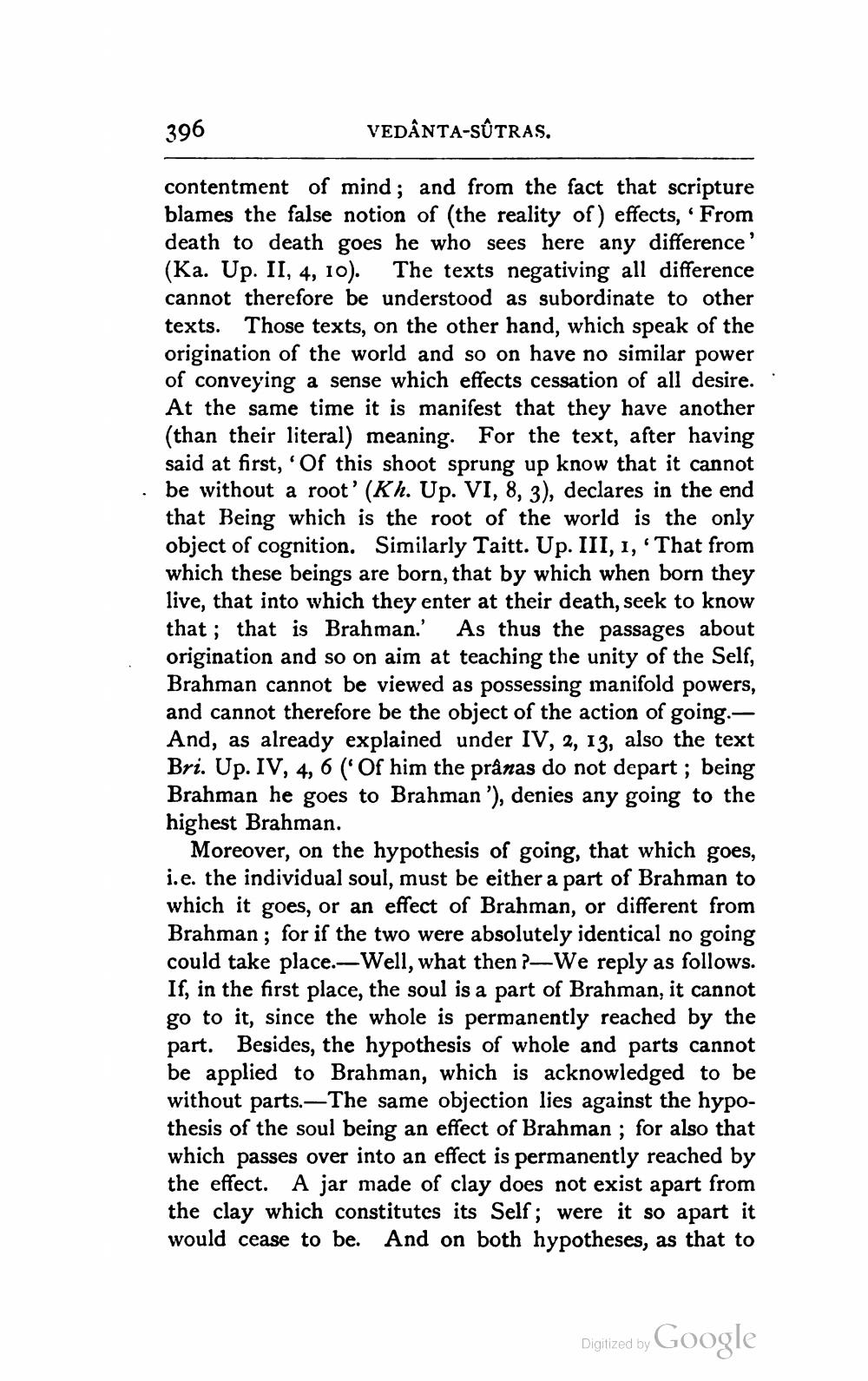________________
396
VEDÂNTA-SÛTRAS.
contentment of mind; and from the fact that scripture blames the false notion of the reality of) effects, ' From death to death goes he who sees here any difference' (Ka. Up. II, 4, 10). The texts negativing all difference cannot therefore be understood as subordinate to other texts. Those texts, on the other hand, which speak of the origination of the world and so on have no similar power of conveying a sense which effects cessation of all desire At the same time it is manifest that they have another (than their literal) meaning. For the text, after having
said at first, Of this shoot sprung up know that it cannot . be without a root' (Kh. Up. VI, 8, 3), declares in the end
that Being which is the root of the world is the only object of cognition. Similarly Taitt. Up. III, 1, 'That from which these beings are born, that by which when born they live, that into which they enter at their death, seek to know that; that is Brahman.' As thus the passages about origination and so on aim at teaching the unity of the Self, Brahman cannot be viewed as possessing manifold powers, and cannot therefore be the object of the action of going.And, as already explained under IV, 2, 13, also the text Bri. Up. IV, 4, 6 (Оf him the prânas do not depart ; being Brahman he goes to Brahman'), denies any going to the highest Brahman.
Moreover, on the hypothesis of going, that which goes, i.e. the individual soul, must be either a part of Brahman to which it goes, or an effect of Brahman, or different from Brahman; for if the two were absolutely identical no going could take place.--Well, what then 2-We reply as follows. If, in the first place, the soul is a part of Brahman, it cannot go to it, since the whole is permanently reached by the part. Besides, the hypothesis of whole and parts cannot be applied to Brahman, which is acknowledged to be without parts.—The same objection lies against the hypothesis of the soul being an effect of Brahman; for also that which passes over into an effect is permanently reached by the effect. A jar made of clay does not exist apart from the clay which constitutes its Self; were it so apart it would cease to be. And on both hypotheses, as that to
Digitized by Google




